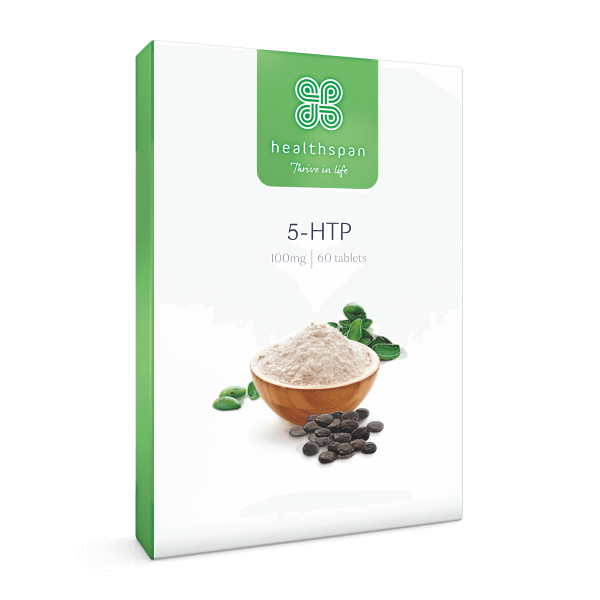Ensuring you get restful sleep each night is one of the best ways to improve your general wellbeing. Insufficient or poor-quality sleep can suppress the immune system, leaving you more vulnerable to illness or disease.
Unlike many other body systems, the immune system is not confined to a single location. Although immune health is primarily regulated within the digestive tract, immune cells circulate throughout the body.1 The system's main purpose is to protect and heal the body from damage by fighting infections caused by bacteria and viruses, but it also plays a role in inflammation, wound healing and allergic responses. This guide will help you understand how to support your body's natural defences better, divulge the relationship between sleep and immunity and advise on improving the quality of your sleep naturally.
Sleep and the immune system
Poor sleep can inhibit many of the immune system's essential processes. 40% of Brits sleep for only 6 hours or less per night, so are missing out on the vital rest they need to remain happy and healthy.2 One study found that, in identical twins, the sibling that slept for fewer hours each night had a weaker immune system compared to their twin.3 As such, while chronic sleep deprivation is the greatest concern to immune health, even short periods of sleep deprivation could have an impact on the body's healing response.4
How can high-quality sleep improve the immune system?
1. Immune cells
One of the fundamental ways sleep affects immunity is through the migration of immune cells. The number of immune cells in the circulation varies, increasing during the night and falling in the morning. This is because the immune cells migrate back towards the lymph nodes, where they are primed for action and help filter out any bacteria or abnormal cells within the lymph fluid that drains back from the tissues.5 So it's not a bad thing that immune cells have reduced in the blood - they have just temporarily redistributed back to the lymph nodes. On top of this, the study found as little as one night without sleep was enough to significantly alter the function of the immune system overnight.6
2. Gut health
Another way sleep influences the immune system is through the gut. Around 70-80% of the immune system is governed by the digestive tract, and like any system in the body, the gut uses sleep to reset and repair. Research has shown that sleep, or lack of it, can influence the diversity of microbes found in the gut. The more diversity, the healthier the digestive tract is. These microbes play a significant role in immune health, which gives you another reason to focus on achieving a good night's sleep.7
3. Mental health and stress
Sleep can also have a large impact on mental health. Originally, it was thought poor sleep was a symptom of common mental health problems such as depression. However, recent research has found that poor sleep can contribute to the development of mental health conditions including depression, anxiety and bipolar disorder.8 As such, getting plenty of rest can prove beneficial to the mind and, in turn, the immune system. When the mind is healthy, the body produces less of the stress hormones and inflammatory compounds which suppress the immune system.9 So, getting a better night's sleep can take some of the strain off the body and allow it to focus on protecting against invading pathogens.
How much sleep is needed to support immunity?
The optimal amount of sleep for any person depends upon a number of individual lifestyle factors. Nonetheless, most research shows getting at least 7 hours of sleep is key for supporting a healthy immune system. But alongside sleeping for the right amount of time, you should make sure you're not compromising on quality. If you wake up every hour for that 7 hours, your body won't get the deep rest it needs to heal. That's why it's just as important to focus on sleep quality as well as quantity.
Improving sleep naturally
Around 31-55% of sleep duration is based on your genetics. The remainder, however, is influenced by everyday factors like your behaviour and environment. As such, there are some simple tweaks you can implement to support a longer, deeper sleep.
1. Relieve stress
Many studies show a strong link between stress levels and poor sleep. While there is no easy fix for stress, you can implement simple stress management strategies before bed to ease you into a more restful sleep.10 Writing in a journal, meditation, gentle stretching or taking a warm bath are just a few options to try. You could even add some magnesium flakes into the bath to help aid relaxation.
2. Remove artificial lighting
One common contributing factor to poor sleep is artificial lighting. Bright lights, including those found on phones and other electronic devices, can interfere with the production of melatonin - the hormone responsible for inducing sleep.11 Lower melatonin levels can affect sleep onset and quality. To support natural melatonin production, keep the lights down low once the sun has set, particularly in the last hour before you go to bed. If you must use electronic devices before sleep, install a blue-light blocker app to minimise the impact on your melatonin levels.

5-HTP 100mg
Converted in the body into serotonin
- Pure, vegan and botanical-source of 5-HTP
- Vitamins C, B3, B6, biotin and folic acid support nervous and psychological functions
- With added zinc for cognitive support







